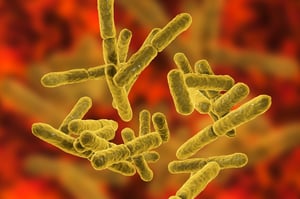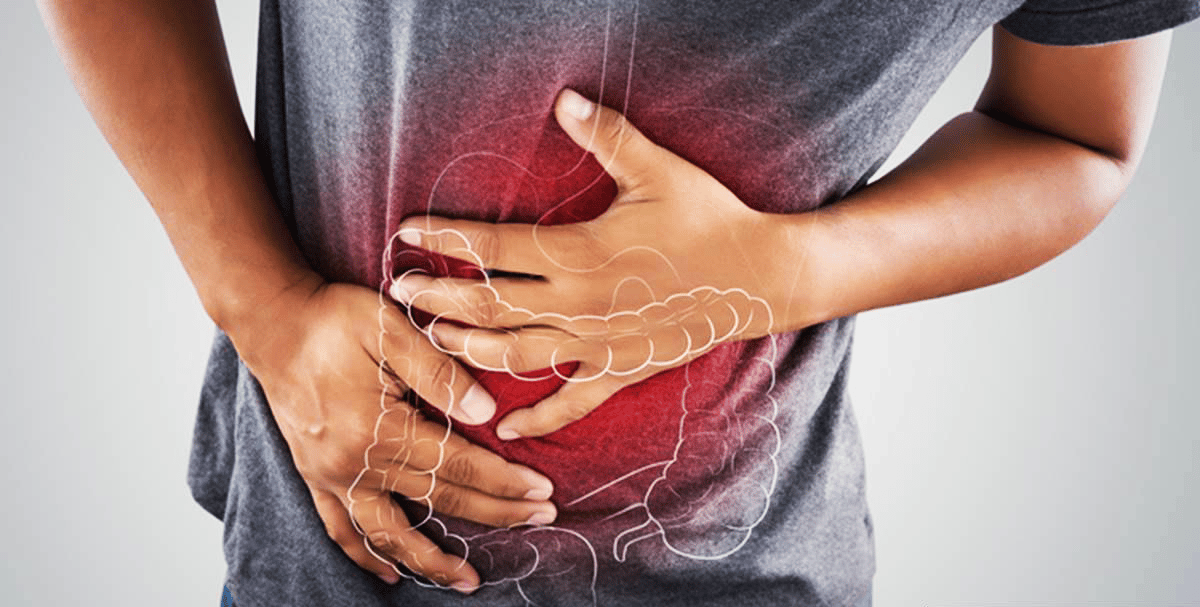Share this
microbiome biomarkers: what’s going on in your gut?
by Neoteryx Microsampling on Aug 22, 2019 3:11:00 AM
 The makeup of the human body is determined by genes. For every human gene, there are hundreds of corresponding bacterial ones. This is what is referred to as your “microbiome.” The microbiome has a huge impact on your health, including your digestive system and more.
The makeup of the human body is determined by genes. For every human gene, there are hundreds of corresponding bacterial ones. This is what is referred to as your “microbiome.” The microbiome has a huge impact on your health, including your digestive system and more.
As much as these bodily bacteria affect you, you also influence the species of bacteria residing in your body, by food intake, other decisions you make, and the way you were born. Your body is like an entire planet for the microbiome. So it has different “ecosystems” where different bacteria are found in various parts of the body.
For example, research by Elizabeth Grice found species of microbiome on the skin from at least 205 genera. This contrasts what was found on other parts of the body, like inside ears or nostrils.
Despite the vast amount of microbiome species found on the skin, this is nothing compared to the ones in your bowels. Your intestines host more bacteria than any other part of the body. Research lead by Junjie Qun and Ruiqiang Li concluded each bowel in a human body carries at least 160 species of bacteria and the entire gut has around 3.3 million bacteria genes.
how does your gut biome affect your overall health?
Microbes are like a non-existent organ of the body. They harvest energy from the food you eat and then channel nutrients to your body. They also play a part in preventing the growth of harmful bacteria. However, if not controlled, bacterial overgrowth can cause health issues, including obesity and bowel disorders.

New research from Yale found bowel bacteria alters the efficacy of the medication. The research tested 271 drugs taken orally against seventy-six strains of bacteria. Approximately 180 drugs were affected by at least one strain of bacteria.
The 76 strains changed between eleven and 95 drugs. This means the efficacy of orally ingested drugs is affected by the microbiome in your body.
It has also been found that certain species of bacteria are active during specific times of the day. This means that the time you take medication is crucial; drugs taken in the morning may be less effective if taken in the evening.
Understanding each individual’s microbiome is crucial in therapeutic drug monitoring, actualizing the potential of personalized medicine, and moving in a new direction of smarter healthcare.
Share this
- Microsampling (206)
- Research, Remote Research (119)
- Venipuncture Alternative (105)
- Clinical Trials, Clinical Research (83)
- Mitra® Device (73)
- Therapeutic Drug Monitoring, TDM (51)
- Dried Blood Spot, DBS (39)
- Biomonitoring, Health, Wellness (30)
- Infectious Disease, Vaccines, COVID-19 (24)
- Blood Microsampling, Serology (23)
- Omics, Multi-Omics (21)
- Decentralized Clinical Trial (DCT) (20)
- Specimen Collection (18)
- Toxicology, Doping, Drug/Alcohol Monitoring, PEth (17)
- Skin Microsampling, Microbiopsy (14)
- hemaPEN® Device (13)
- Preclinical Research, Animal Studies (12)
- Pharmaceuticals, Drug Development (9)
- Harpera Device (7)
- Industry News, Microsampling News (5)
- Antibodies, MAbs (3)
- Company Press Release, Product Press Release (3)
- Environmental Toxins, Exposures (1)
- July 2025 (1)
- May 2025 (1)
- April 2025 (2)
- December 2024 (2)
- November 2024 (1)
- October 2024 (3)
- September 2024 (1)
- June 2024 (1)
- May 2024 (1)
- April 2024 (4)
- March 2024 (1)
- February 2024 (2)
- January 2024 (4)
- December 2023 (3)
- November 2023 (3)
- October 2023 (3)
- September 2023 (3)
- July 2023 (3)
- June 2023 (2)
- April 2023 (2)
- March 2023 (2)
- February 2023 (2)
- January 2023 (3)
- December 2022 (2)
- November 2022 (3)
- October 2022 (4)
- September 2022 (3)
- August 2022 (5)
- July 2022 (2)
- June 2022 (2)
- May 2022 (4)
- April 2022 (3)
- March 2022 (3)
- February 2022 (4)
- January 2022 (5)
- December 2021 (3)
- November 2021 (5)
- October 2021 (3)
- September 2021 (3)
- August 2021 (4)
- July 2021 (4)
- June 2021 (4)
- May 2021 (4)
- April 2021 (3)
- March 2021 (5)
- February 2021 (4)
- January 2021 (4)
- December 2020 (3)
- November 2020 (5)
- October 2020 (4)
- September 2020 (3)
- August 2020 (3)
- July 2020 (6)
- June 2020 (4)
- May 2020 (4)
- April 2020 (3)
- March 2020 (6)
- February 2020 (3)
- January 2020 (4)
- December 2019 (5)
- November 2019 (4)
- October 2019 (2)
- September 2019 (4)
- August 2019 (4)
- July 2019 (3)
- June 2019 (7)
- May 2019 (6)
- April 2019 (5)
- March 2019 (6)
- February 2019 (5)
- January 2019 (8)
- December 2018 (3)
- November 2018 (4)
- October 2018 (7)
- September 2018 (6)
- August 2018 (5)
- July 2018 (8)
- June 2018 (6)
- May 2018 (5)
- April 2018 (6)
- March 2018 (4)
- February 2018 (6)
- January 2018 (4)
- December 2017 (2)
- November 2017 (3)
- October 2017 (2)
- September 2017 (4)
- August 2017 (2)
- July 2017 (4)
- June 2017 (5)
- May 2017 (6)
- April 2017 (6)
- March 2017 (5)
- February 2017 (4)
- January 2017 (1)
- July 2016 (3)
- May 2016 (1)
- April 2016 (2)



No Comments Yet
Let us know what you think